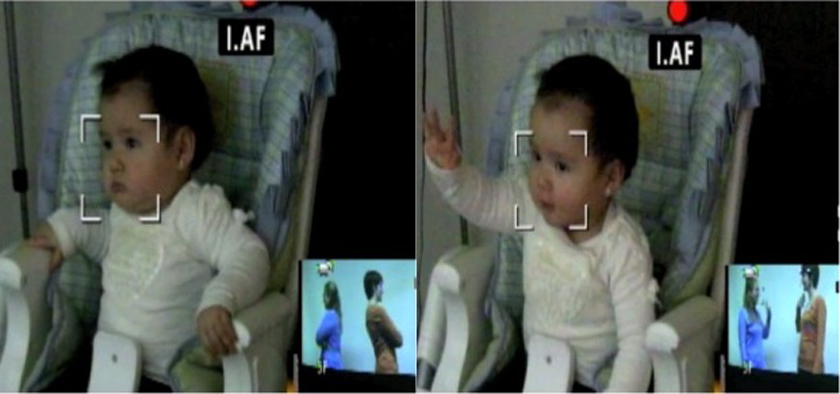Your baby knows who your real friends are

FRIENDS OR FOES Babies stared longer at a video of two women who shared the same opinion about food but later acted cold to one another, suggesting that the infants expect certain people to get along.
Courtesy of Zoe Liberman







